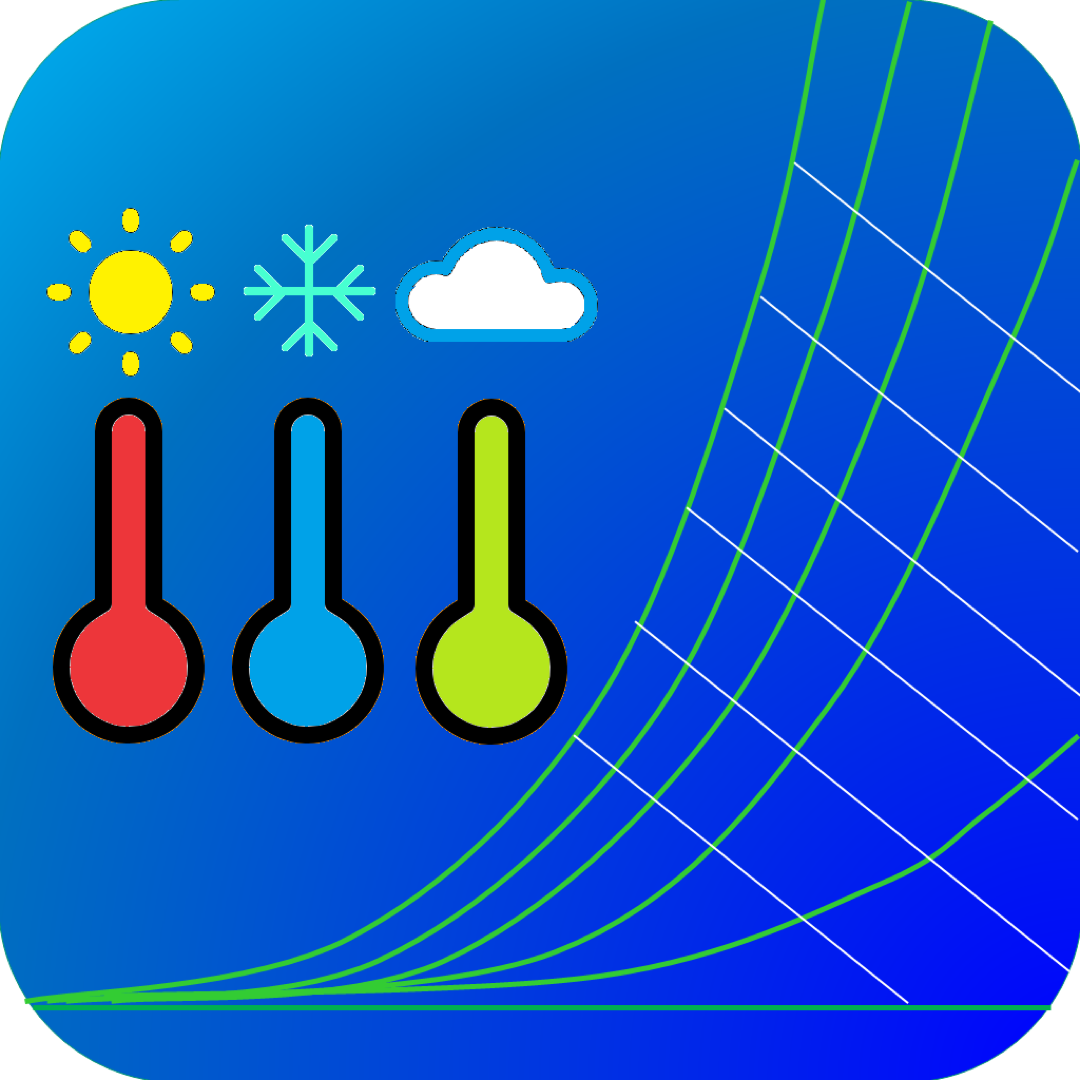Kuvaus
With this app you define psychrometric processes for different ambient air conditions and simulate them using climate data. While simulating, it calculates the capacities required to perform these processes. The reporting, both on screen and as pdf file, shows details about every psychrometric point in the processes, about all actions and processes and climate data.
To define a psychrometric process, you use actions between two or more psychrometric points, depending on the kind of action: - Saturate: cool air from a given psychrometric point to a saturation point at 100% relative humidity. By entering a sensible heat factor, the app calculate the resulting saturation point. - Condensate: cools the air along the saturation line and dries it through condensation. - Heat: heats air using a given capacity, up to a given temperature or to a given psychrometric point. For the first two options, the app calculates the target point. - Cool: cools air using either a given capacity and sensible heat factor (SHF) or up to a given psychrometric point. - Humidify: humidifies air through steam or water evaporation, using a given humidification amount or up to a given psychrometric point. - Mix air: adiabatic mixing of air from two sources resulting a mixed air condition. - Heat exchange: heat or cool ambient air using the exhausted room air. You can choose between a total heat exchanger and a sensible one.
There are also two specific actions: - Fixed or dynamic psychrometric points. A calculated point is dynamic, but also an ambient air point, as its value changes during a simulation - Thermostat: a conditional action deciding whether to use a cooling, a heating or ventilation process. It uses temperature and humidity limits to change the process in use.
You can now combine these actions into processes, which in turn define a project. Then you define a climate. The app contains climate parameters for all capital cities of the world, but you can adapt them for any location. Climate data define ambient air conditions for each hour of 365 days, giving a total of 8760 climate conditions.
During a simulation run these conditions are applied to the processes and visualized on a psychrometric diagram. At the same time, the app calculates capacities required to heat, cool or humidify, so that you get an overview of the yearly capacities needed to run these processes. An elaborate reporting function shows the process data, the climate data and the simulation results both on screen and on pdf.


